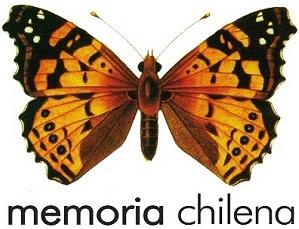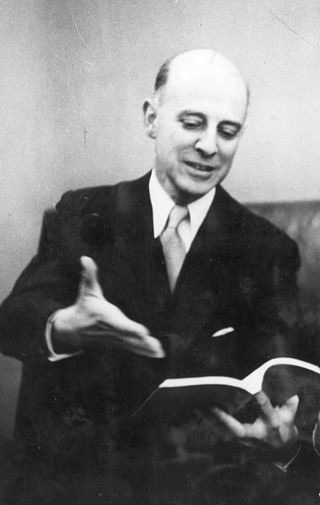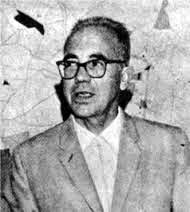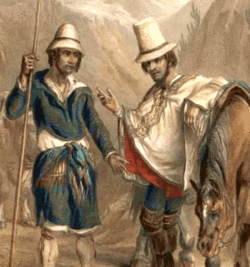
This is a timeline of Chilean history, comprising important legal and territorial changes and political events in Chile and its predecessor states. To read about the background to these events, see History of Chile. See also the list of governors and presidents of Chile.

Chilean literature refers to all written or literary work produced in Chile or by Chilean writers. The literature of Chile is usually written in Spanish. Chile has a rich literary tradition and has been home to two Nobel prize winners, the poets Gabriela Mistral and Pablo Neruda. It has also seen three winners of the Miguel de Cervantes Prize, considered one of the most important Spanish language literature prizes: the novelist, journalist and diplomat Jorge Edwards (1998), and the poets Gonzalo Rojas (2003) and Nicanor Parra (2011).

In Chilean historiography, Colonial Chile is the period from 1600 to 1810, beginning with the Destruction of the Seven Cities and ending with the onset of the Chilean War of Independence. During this time, the Chilean heartland was ruled by Captaincy General of Chile. The period was characterized by a lengthy conflict between Spaniards and native Mapuches known as the Arauco War. Colonial society was divided in distinct groups including Peninsulars, Criollos, Mestizos, Indians and Black people.
Mario Góngora del Campo was a Chilean historian considered "one of the most important Chilean historians of the 20th century". Though his work he examined the history of the inquilinos, the encomentaderos, rural vagabonds and Indian Law. He was in charge of university courses on medieval history.
Historia is a peer-reviewed academic journal specialising in the history of the Americas and Chile. It was established in 1961 and its first director was Jaime Eyzaguirre. The first editorial committee included Ricardo Krebs, Gonzalo Vial, Gabriel Guarda, Armando de Ramón, Julio González and Carlos Oviedo. Javier González acted as secretary. Apart from original articles, the journal includes a bibliography of any history publication about Chile or written by a Chilean in the period that precedes the journal deem relevant.
Gabriel Guarda, was a Chilean historian and architect.

Memoria Chilena is a Chilean cultural website which, according to its own words, "offers investigations and documents related to key topics which make up the Chilean identity, accessible through the areas of history, literature, social sciences, music, and visual arts." Memoria Chilena is, also, a virtual library, which preserves material from the Biblioteca Nacional de Chile and other institutions from the Dirección de Bibliotecas, Archivos y Museos (DIBAM).
As an archaeological culture, the Mapuche people of southern Chile and Argentina have a long history which dates back to 600–500 BC. The Mapuche society underwent great transformations after Spanish contact in the mid–16th century. These changes included the adoption of Old World crops and animals and the onset of a rich Spanish–Mapuche trade in La Frontera and Valdivia. Despite these contacts Mapuche were never completely subjugated by the Spanish Empire. Between the 18th and 19th century Mapuche culture and people spread eastwards into the Pampas and the Patagonian plains. This vast new territory allowed Mapuche groups to control a substantial part of the salt and cattle trade in the Southern Cone.
Editorial Universitaria is Chilean university press based in Santiago. It was established in 1947 with funds from private people and from the University of Chile. During its existence, it has published the works of generations influential Chilean scientists and intellectuals.

Tomás Guevara Silva (1865–1935) was a Chilean historian, teacher, War of the Pacific veteran and a prominent scholar of the Mapuche people. He was born in Curicó.
Guillermo Feliú Cruz (1900-1973) was a Chilean historian, bibliographer and librarian. He learned historical method by José Toribio Medina who later successfully proposed Feliú Cruz as curator of Biblioteca Americana in the Biblioteca Nacional de Chile.

Jaime Eyzaguirre was a Chilean lawyer, essayist and historian. He is variously recognized as a writer of Spanish traditionalist or conservative historiography in his country.
In Colonial times the Spanish Empire diverted significant resources to fortify the Chilean coast as consequence of Dutch and English raids. The Spanish attempts to block the entrance of foreign ships to the eastern Pacific proved fruitless due to the failure to settle the Strait of Magellan and the discovery of the Drake Passage. As result of this the Spanish settlement at Chiloé Archipelago became a centre from where the west coast of Patagonia was protected from foreign powers. In face of the international wars that involved the Spanish Empire in the second half of the 18th century the Crown was unable to directly protect peripheral colonies like Chile leading to local government and militias assuming the increased responsibilities.
In Colonial times the Spanish Empire diverted significant resources to fortify the Chilean coast as a consequence of Dutch and English raids. During the 16th century the Spanish strategy was to complement the fortification work in its Caribbean ports with forts in the Strait of Magellan. As attempts at settling and fortifying the Strait of Magellan were abandoned the Spanish began to fortify the Captaincy General of Chile and other parts of the west coast of the Americas. The coastal fortifications and defense system was at its peak in the mid-18th century.

Ricardo Krebs Wilckens was a Chilean historian of German descent. In 1943, Krebs joined the newly founded Pedagogy School of the Pontifical Catholic University of Chile, where he was in charge of the universal history course. Krebs, as a native of Valparaíso, had until then spent a career in Germany and so he was rather isolated with few contacts in Santiago.
José Armando de Ramón Folch was a Chilean historian mostly known for his study of urban history. In 1954, de Ramón joined the newly founded Instituto de Investigacions Históricas of the Pontifical Catholic University of Chile led by Jaime Eyzaguirre. He was part of the editorial committee of the journal Historia since it was established in 1961. In 1998, he was awarded the Chilean National History Award.

Julio César Jobet Bourquez was a Chilean Marxist historian. He was descendant of French and Spanish agricultural colonists who arrived to La Araucanía Region in the aftermath of the Occupation of Araucanía. He was a detractor of historian Jaime Eyzaguirre whom he criticized in harsh terms.
Hernán Ramírez Necochea (1917-1979) was a Chilean Marxist historian. In 1968 he became director of the faculty of Philosophy and Education in the University of Chile. Following the 1973 Chilean coup d'etat he went to exile in Paris, France where he lectured in the Paris-Sorbonne University.

The Defensive War was a strategy and phase in the Arauco War between Spain and independent Mapuches. The idea of the Defensive War was conceived by Jesuit father Luis de Valdivia who sought to diminish hostilities, establish a clear frontier and increase missionary work among the Mapuches. Luis de Valdivia believed the Mapuches could be voluntarily converted to Christianity only if there was peace.

Banditry was a considerable phenomenon in 19th century and early 20th century Central Chile and Araucanía. Many bandits achieved legendary status for their brutality and others for being regarded folk heroes. The bandits usually preyed on haciendas and their inquilinos.









